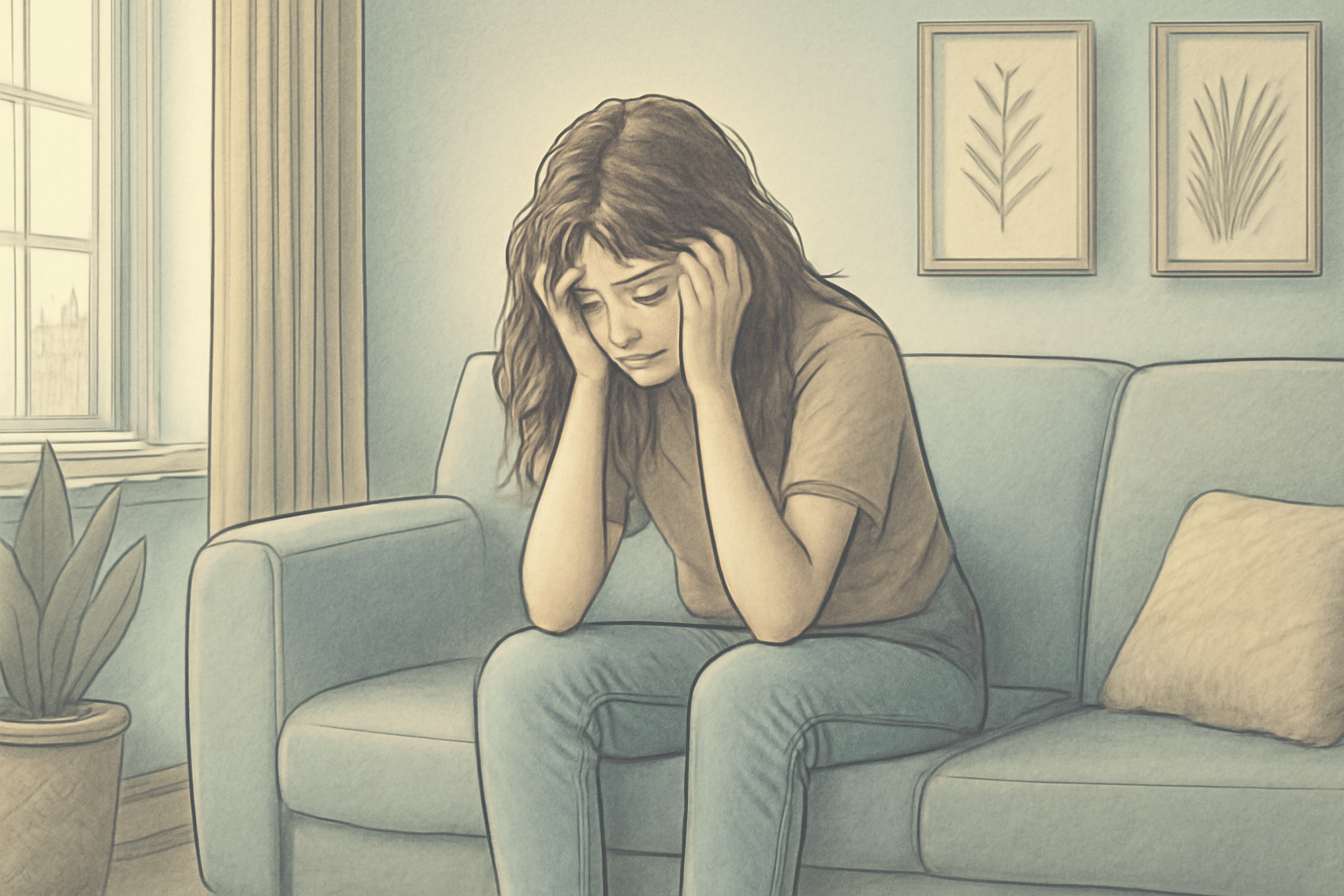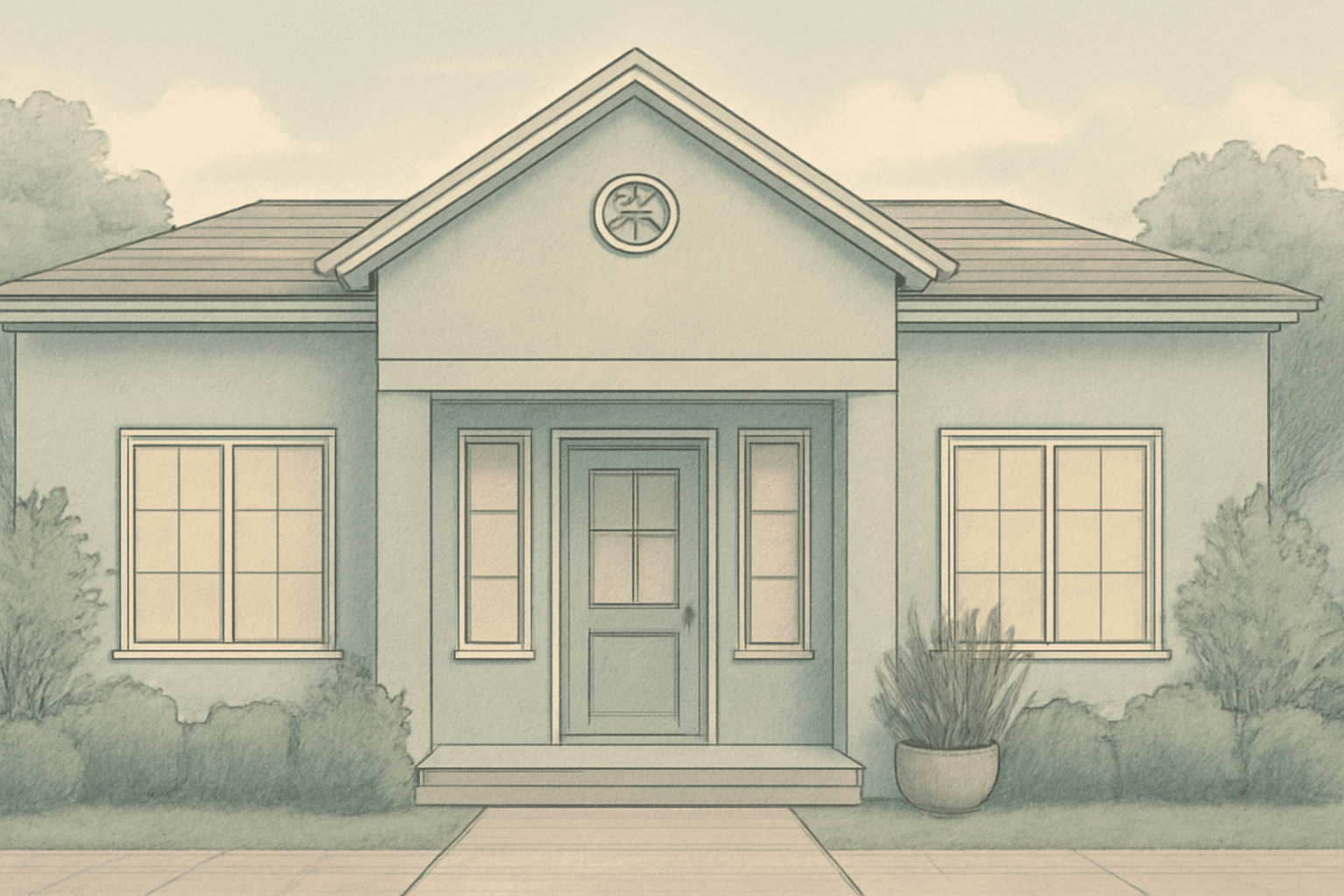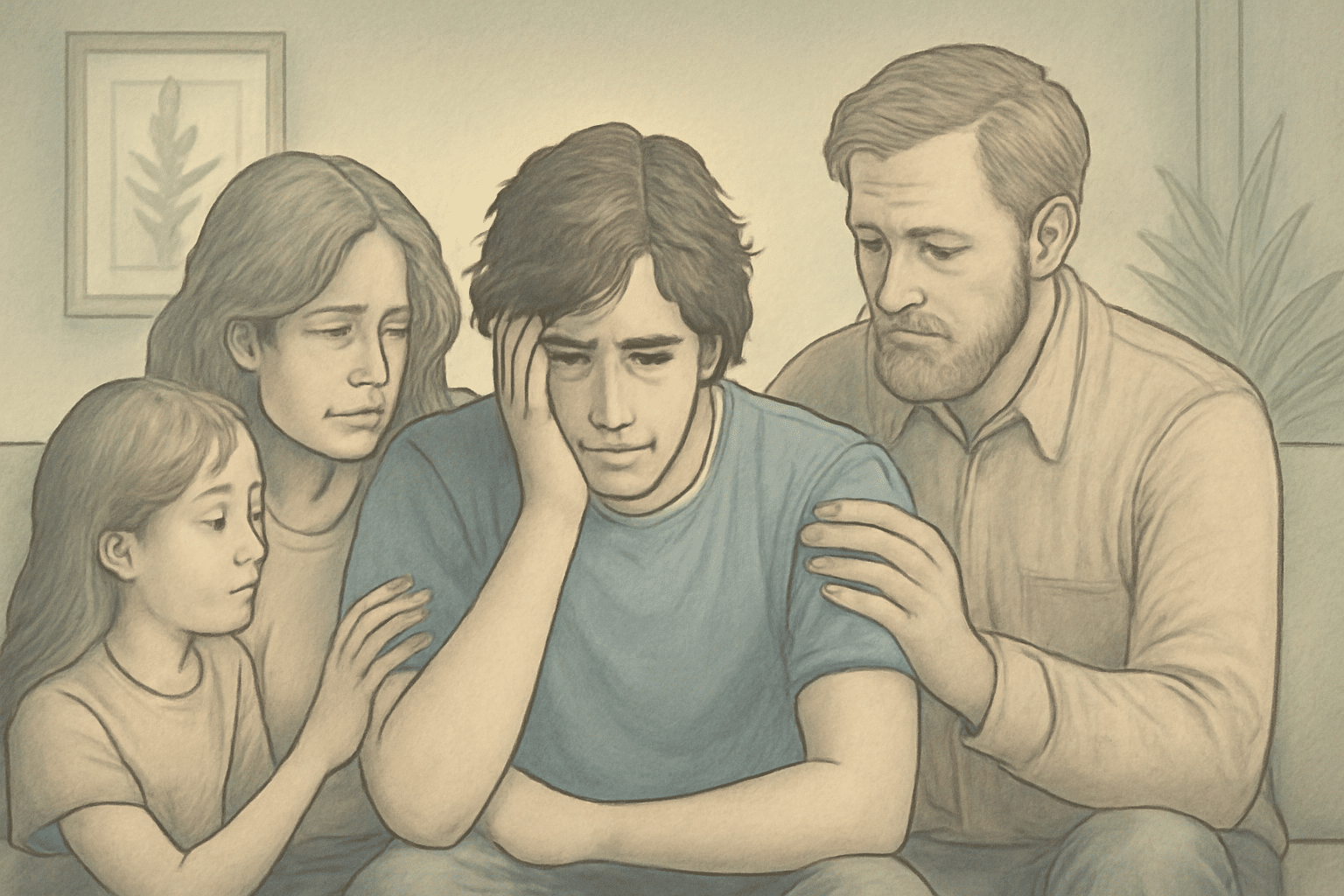Key Takeaways
- Individuals with schizoaffective disorder face a life expectancy that is 8–17.5 years shorter than the general population, with men averaging 69.4 years and women 64.1 years.
- The life expectancy gap is primarily attributed to physical health conditions (79%), including cardiovascular disease, respiratory problems, metabolic disorders, and infectious diseases.
- Recent studies show encouraging improvements in life expectancy for people with serious mental illnesses, suggesting treatment approaches may be making a positive impact.
- Lifestyle modifications, medication management, and strong support systems can significantly improve quality of life and potentially extend lifespan for those with schizoaffective disorder.
- A Mission for Michael’s integrated healthcare approach addresses both psychiatric symptoms and physical health factors simultaneously, providing comprehensive treatment that targets the root causes of reduced life expectancy through coordinated care and lifestyle interventions.
Life Expectancy Gap
Research indicates that individuals with serious mental illnesses (SMIs) like schizoaffective disorder often have shorter lifespans compared to the general population. This life expectancy gap represents one of the most significant health disparities in modern medicine. Studies consistently show that people with schizoaffective disorder may live 10–20 years less than those without the condition, though this gap appears to be slowly narrowing in recent years.
The reasons behind this disparity are complex and multifaceted, involving biological, psychological, social, and healthcare system factors. Rather than being a direct result of the mental illness itself, the gap largely stems from related physical health conditions and social determinants of health that affect people with schizoaffective disorder at higher rates.
8–17 Years Shorter
According to research data, the average life expectancy for individuals diagnosed with schizoaffective disorder is approximately 69.4 years for men and 64.1 years for women. These figures represent a reduction of 8 years for men and 17.5 years for women compared to the general population.
Interestingly, this pattern differs from what we typically see in the general population, where women tend to live longer than men. The more significant gap for women with schizoaffective disorder points to unique challenges they may face in receiving appropriate care or managing comorbid conditions.
Recent Improvements
There is encouraging news in the research literature regarding life expectancy trends. Recent studies show modest improvements in life expectancy for people with serious mental illnesses, including schizoaffective disorder.
These positive trends may reflect enhanced awareness of physical health needs among mental health providers, better integration of medical and psychiatric care, and improved treatment approaches.
Gender Differences
The life expectancy patterns in schizoaffective disorder reveal significant gender-based differences that deserve attention. While women in the general population typically outlive men by several years, this advantage appears to be reversed in schizoaffective disorder, with women having a lower life expectancy (64.1 years) compared to men (69.4 years).
This 5.3-year difference highlights potential gender-specific risk factors or treatment disparities that may disproportionately affect women with this condition.
Founded in 2010, A Mission For Michael (AMFM) offers specialized mental health care across California, Minnesota, and Virginia. Our accredited facilities provide residential and outpatient programs, utilizing evidence-based therapies such as CBT, DBT, and EMDR.
Our dedicated team of licensed professionals ensures every client receives the best care possible, supported by accreditation from The Joint Commission. We are committed to safety and personalized treatment plans.
Why The Shorter Lifespan?

Understanding why individuals with schizoaffective disorder experience reduced life expectancy is crucial for developing effective interventions.
Higher Suicide Rates
Suicide represents a significant risk factor for individuals with schizoaffective disorder, contributing to the reduced life expectancy. People with this condition face approximately higher risk of suicide compared to the general population.
The combination of mood symptoms (depression or mania) with psychotic features creates a particularly vulnerable state where suicidal thoughts may emerge during periods of severe symptoms.
Comprehensive suicide prevention strategies, including safety planning, reducing access to lethal means, and treating underlying symptoms aggressively, can significantly reduce this risk.
Cardiovascular Issues
Cardiovascular disease stands as the leading cause of premature death among people with schizoaffective disorder. Research shows that individuals with this condition have a 2–3 times higher risk of dying from heart disease compared to the general population. This elevated risk stems from multiple factors, including higher rates of smoking, sedentary lifestyle, poor diet, obesity, and the metabolic effects of certain antipsychotic medications.
The cardiac risk begins earlier in life for those with schizoaffective disorder, with evidence of accelerated cardiovascular aging. Regular monitoring of cardiac health markers, including blood pressure, cholesterol levels, and electrocardiograms, should be standard practice in the care of individuals with this condition. Early detection and management of cardiovascular risk factors can significantly improve long-term outcomes.
Medication Side Effects
While antipsychotic and mood-stabilizing medications are essential for managing schizoaffective disorder symptoms, some can contribute to physical health problems that impact longevity.
Second-generation antipsychotics, while often having fewer neurological side effects than first-generation options, may increase the risk of weight gain, diabetes, and lipid abnormalities. These metabolic changes can accelerate the development of cardiovascular disease and other physical health complications.
Medication management requires careful balancing of symptom control with side effect profiles. Regular monitoring of weight, glucose levels, and lipid panels is essential for patients taking these medications.
Lifestyle Factors
People with schizoaffective disorder often face challenges in maintaining healthy lifestyle habits that can protect against premature mortality. Rates of smoking among this population are significantly higher than the general public, with some studies suggesting 30–40% of individuals with serious mental illness smoke cigarettes.
Additionally, dietary patterns frequently include higher consumption of processed foods, sugar, and unhealthy fats, while physical activity levels tend to be lower.
These lifestyle factors create a perfect storm for metabolic and cardiovascular complications. Sleep disturbances, common in schizoaffective disorder, further compound these issues by disrupting metabolic processes and increasing stress hormone levels.
Healthcare Disparities
Individuals with schizoaffective disorder often receive suboptimal physical healthcare compared to the general population. Studies have shown that even when physical health problems are identified, they may be undertreated or treated less aggressively in people with serious mental illness. This phenomenon, sometimes called “diagnostic overshadowing,” occurs when healthcare providers attribute physical symptoms to mental illness rather than investigating potential medical causes.
Access to care represents another significant barrier. Transportation difficulties, cognitive challenges in managing complex healthcare systems, and financial constraints can all limit healthcare utilization. Many individuals with schizoaffective disorder rely primarily on mental health providers for their care, and these specialists may lack the training or resources to adequately address physical health needs.
The fragmentation between mental health and physical healthcare systems creates dangerous gaps in care coordination.
Improving Outcomes
Despite the concerning statistics about life expectancy, there are many evidence-based strategies that can improve health outcomes for individuals with schizoaffective disorder. The good news is that most of the factors contributing to reduced life expectancy are modifiable with appropriate interventions.
Integrated Healthcare
Integrated healthcare models that address both mental and physical health needs in a coordinated manner show promise for improving life expectancy in schizoaffective disorder. These approaches break down the traditional silos between psychiatric and medical care, ensuring that physical health concerns receive appropriate attention.

Co-located services, where primary care and mental health treatment are provided in the same setting, can overcome many barriers to accessing comprehensive care.
Case management and care coordination are also essential components of effective integrated care. These services help individuals manage complex healthcare systems, attend appointments, follow through with referrals, and maintain medication regimens.
Medication Management
Adherence to prescribed medication regimens is essential for stabilizing schizoaffective disorder symptoms and preventing relapse. However, adherence support must be paired with vigilant monitoring for side effects and prompt intervention when problems arise.
Blood level monitoring, regular physical health screenings, and open communication about side effects are all important components of optimal medication management.
Lifestyle Modifications
Targeted lifestyle interventions can significantly improve physical health outcomes for people with schizoaffective disorder. Smoking cessation programs specifically designed for individuals with serious mental illness have shown effectiveness in reducing tobacco use.
Nutrition and exercise interventions customized to the needs and capabilities of individuals with schizoaffective disorder can address weight management and improve metabolic parameters.
These programs are most effective when they acknowledge the motivational challenges, cognitive difficulties, and medication effects that may impact participation. Small, achievable goals with regular reinforcement tend to be more successful than ambitious targets that may feel overwhelming.
Support Systems

Strong support systems play a crucial role in improving both quality of life and longevity for individuals with schizoaffective disorder.
Family education and involvement in treatment can enhance adherence to medication and lifestyle recommendations while providing essential emotional support. Peer support from others who share similar experiences offers unique benefits, including hope, practical coping strategies, and reduced isolation.
Community support services, including housing assistance, vocational rehabilitation, and social skills training, address the social determinants of health that impact life expectancy.
Comprehensive Schizoaffective Care at AMFM

At AMFM, our treatment facilities provide the right environment for comprehensive treatment. We treat not just the illness but the whole person.
A Mission for Michael’s evidence-based approach directly addresses the life-limiting factors of people with schizoaffective disorder through integrated healthcare that treats both psychiatric symptoms and physical health simultaneously.
We provide coordinated medical monitoring, specialized medication management that balances symptom control with metabolic health, and targeted lifestyle interventions including smoking cessation and nutrition support.
Our clinical team understands the unique challenges faced by individuals with schizoaffective disorder and provides the comprehensive support needed to both manage symptoms and address the underlying health factors that impact longevity.
Don’t let statistics define your future. With appropriate treatment and support, many people with schizoaffective disorder live full, meaningful lives. Contact AMFM today to learn how our integrated approach can help you or your loved one achieve better health outcomes and improved quality of life.
Frequently Asked Questions
Is schizoaffective disorder fatal?
Schizoaffective disorder itself is not directly fatal, but it is associated with increased mortality risk through various indirect mechanisms. The condition can increase vulnerability to suicide during periods of severe symptoms, particularly during depressive episodes. Additionally, the chronic stress associated with managing the disorder may impact immune function and overall physical health. However, with appropriate treatment and support, many individuals with schizoaffective disorder can manage their symptoms effectively and reduce these risks substantially.
Does medication reduce life expectancy?
The relationship between psychiatric medications and life expectancy is complex. While some medications can contribute to physical health problems, untreated schizoaffective disorder typically poses greater risks to both quality of life and longevity. The key is finding the optimal balance between symptom control and side effect management through careful medication selection, monitoring, and dose adjustment.
Can lifestyle changes help?
Lifestyle modifications can significantly improve health outcomes and potentially extend life expectancy for individuals with schizoaffective disorder. Research shows that smoking cessation alone can add years to life expectancy, while improvements in diet, physical activity, and sleep quality can reduce cardiovascular and metabolic risks.
Are certain demographics at higher risk?
Significant disparities exist in life expectancy outcomes among different demographic groups with schizoaffective disorder. Socioeconomic factors play a major role, with individuals from lower-income backgrounds facing greater challenges in accessing quality healthcare, nutritious food, safe housing, and other resources that support longevity. Racial and ethnic minorities with schizoaffective disorder often experience compounded disparities due to the intersection of mental health stigma with structural racism in healthcare systems.
How does AMFM help improve life outcomes for people with schizoaffective disorder?
AMFM provides integrated healthcare that addresses both mental and physical health needs simultaneously. Our comprehensive approach includes coordinated medical care, medication management with side effect monitoring, lifestyle modification support, and addressing social determinants of health to improve overall outcomes and potentially extend lifespan.












